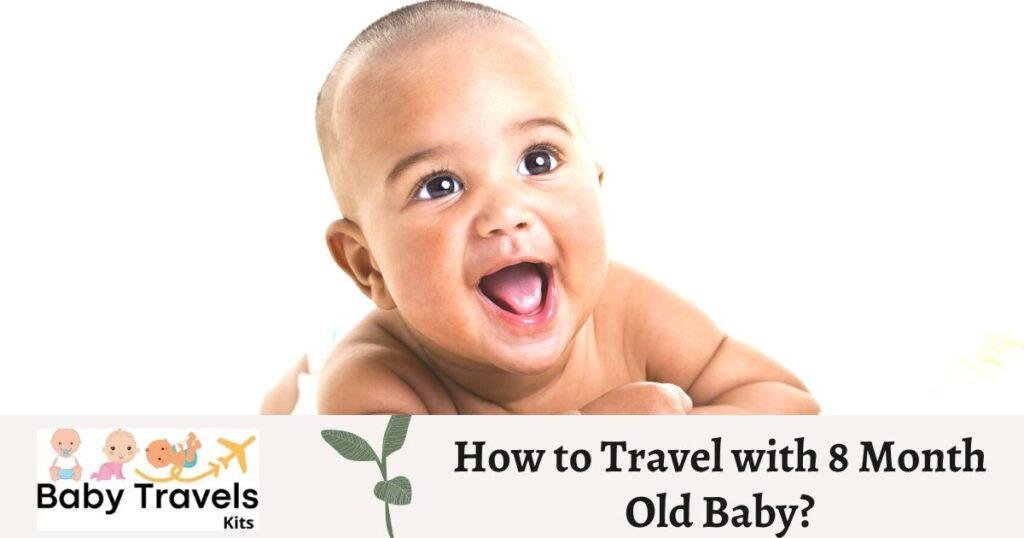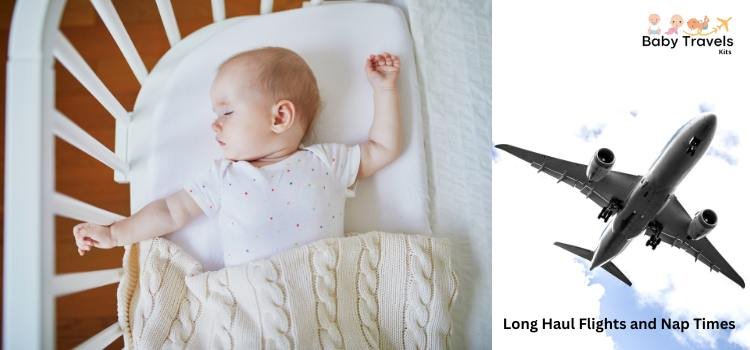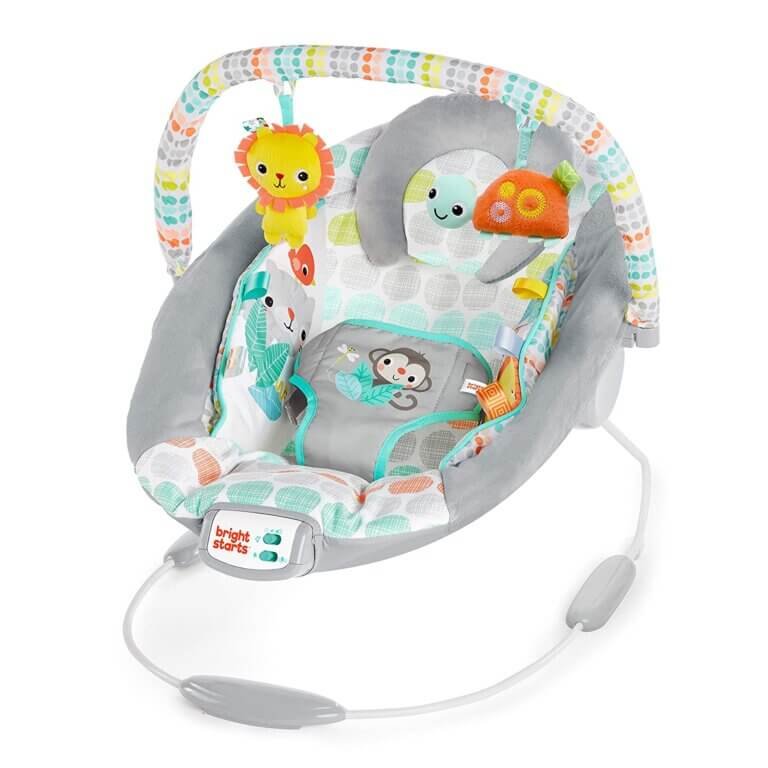In this article, we describe “How to Travel with 8 Month Old Baby? “ We discuss all the safety issues as well as the practicalities of traveling with a baby.

This is a very busy time for parents. It is important that they keep their children safe and well looked after. We have included a lot of tips on how to do this.
Traveling with an 8-month-old baby can be an exciting adventure, but it also requires careful planning and preparation to ensure a smooth journey for both you and your little one. Here’s a brief guide on what to expect and how to prepare when traveling with your baby:
1. Preparing for the Flight:
Book Direct Flights:
Whenever possible, opt for direct flights to minimize travel time and potential disruptions.
Check Airline Policies:
Review the airline’s policies regarding infant travel, including baggage allowances, seating options, and fees for traveling with a baby.
Documentation:
Ensure you have all the necessary documents for your baby, such as a valid passport and any required visas.
Related: 5 Best Travel Booster Seat for Eating
2. Flight Attendant:
Notify the Cabin Crew:
Inform the flight attendant that you are traveling with an infant so they can provide you with any necessary assistance.
Ask About Onboard Facilities:
Inquire about the availability of baby-changing tables and request any necessary supplies like blankets or pillows.
Related: Which Things Are Necessary For Travel?

3. Introducing Baby to the Flight Attendants:
- When boarding, introduce your baby to the flight attendants in a friendly manner. This can help establish a rapport, making it easier to request assistance if needed.
4. Asking for Assistance During the Trip:
- Flight attendants are there to assist passengers. If you need help with anything, such as warming up a bottle or changing a diaper, don’t hesitate to ask politely.
5. Baby Food:
Breastfeeding or Bottle-Feeding:
Be prepared to breastfeed or bottle-feed your baby during the flight to help with ear pressure changes during takeoff and landing.
Packing Enough Formula:
If you’re using formula, pack enough for the entire journey and consider carrying extra in case of delays.
6. Packing Enough Food for the Trip:
Snacks and Meals:
In addition to formula or breast milk, pack snacks and baby food suitable for your baby’s age and dietary needs.
Baby’s Favorites:
Bring some of your baby’s favorite snacks to keep them content during the flight.

7. Dealing with Messy Situations:
Changing Diapers:
Be prepared to change diapers during the flight. Carry a diaper bag with all the essentials, including diapers, wipes, and disposable changing mats.
Disposal:
Dispose of soiled diapers and wipes in the designated bins on the plane. Do not leave them in the seat pocket or restroom.
Extra Clothes:
Pack spare outfits for both you and your baby in case of spills or accidents.
Traveling with a baby is a lot of fun! It allows you to spend time together and also to learn how to be a parent. Plus, you get to see new things, meet new people, and experience new cultures.
Traveling with a baby is a challenge. There is no doubt that it will be difficult to get through the day with a little one. However, traveling with a baby will provide you with an opportunity to bond with your child and spend quality time with him.
The first thing to do is to think about whether it is safe to travel with your baby. There are a number of risks associated with traveling with a baby. The biggest danger is that the baby may get injured or even die. Other dangers include the possibility of the baby becoming ill or catching a cold. It is important to remember that traveling with a baby can be dangerous.

A baby’s needs are different from an adult’s, so you will need to be prepared to adapt your travel plans accordingly. For example, babies need a lot more sleep than adults. They also need to be fed and changed regularly. In addition, you will need to carry a few things with you, such as a change of clothes for the baby and a supply of nappies. You may also need to consider whether it is safe to take your baby out in public.
Traveling with a baby is fun. But, if you want to enjoy your vacation, you need to plan ahead. If you’re traveling with a baby, make sure to bring plenty of diapers, a changing pad, wipes, and formula. Also, make sure to bring a car seat for the baby.
International Flights:
When embarking on international flights with your 8-month-old baby, the journey can become more complex. Here are some considerations:
- Passport and Visa: Ensure that your baby has a valid passport and any necessary visas for international travel.
- Time Zone Changes: Be prepared for time zone changes and consider adjusting your baby’s sleep schedule gradually before the trip.
- Jet Lag: Expect that your baby may experience jet lag, which can disrupt their sleep patterns. Plan for a few days of adjustment upon arrival.
Long Haul Flights and Nap Times:
Long-haul flights can be challenging due to their duration. Here’s what to keep in mind:
- Nap Timing: Try to align your baby’s nap times with the flight schedule. A well-rested baby is more likely to handle the journey better.
- Crib Services: Some airlines offer bassinets or infant cots for long-haul flights. Request one in advance if available.

Extra Seat Considerations:
- Consider Booking an Extra Seat: On long flights, it might be worth considering booking an extra seat for your baby if your budget allows. This gives you more space and flexibility.
Domestic Flights:
Traveling domestically with an 8-month-old baby can also present its own set of challenges:
- Shorter Duration: Domestic flights are usually shorter, so it may be easier to manage your baby’s comfort and needs.
- Lap Babies: On domestic flights, you might have the option to travel with your baby on your lap. Be prepared to hold your baby securely during takeoff, landing, and turbulence.
Sleep Schedule Considerations:
- Adjust Gradually: If traveling across time zones, try to adjust your baby’s sleep schedule gradually before the trip to minimize disruptions.
- Nap Opportunities: Encourage napping during the flight if it aligns with your baby’s sleep schedule.
Air Pressure and Cabin Pressure Concerns:
- Ear Pressure: Babies can experience discomfort during changes in air pressure, especially during takeoff and landing. Breastfeeding, bottle-feeding, or using a pacifier during these times can help alleviate ear pressure.
- Cabin Humidity: The cabin air can be dry, so consider using a saline nasal spray or a humidifier to keep your baby’s nasal passages moist.
Baby Carrier and Lap Babies:
- Baby Carrier: Consider using a baby carrier or sling during the flight. This can be convenient for soothing your baby, especially if you need to walk the aisle to calm them.
- Lap Babies: On many flights, infants under two years old can travel as “lap babies,” meaning they sit on your lap without their own seat. However, consider booking a separate seat for your baby if you prefer more space and safety.





